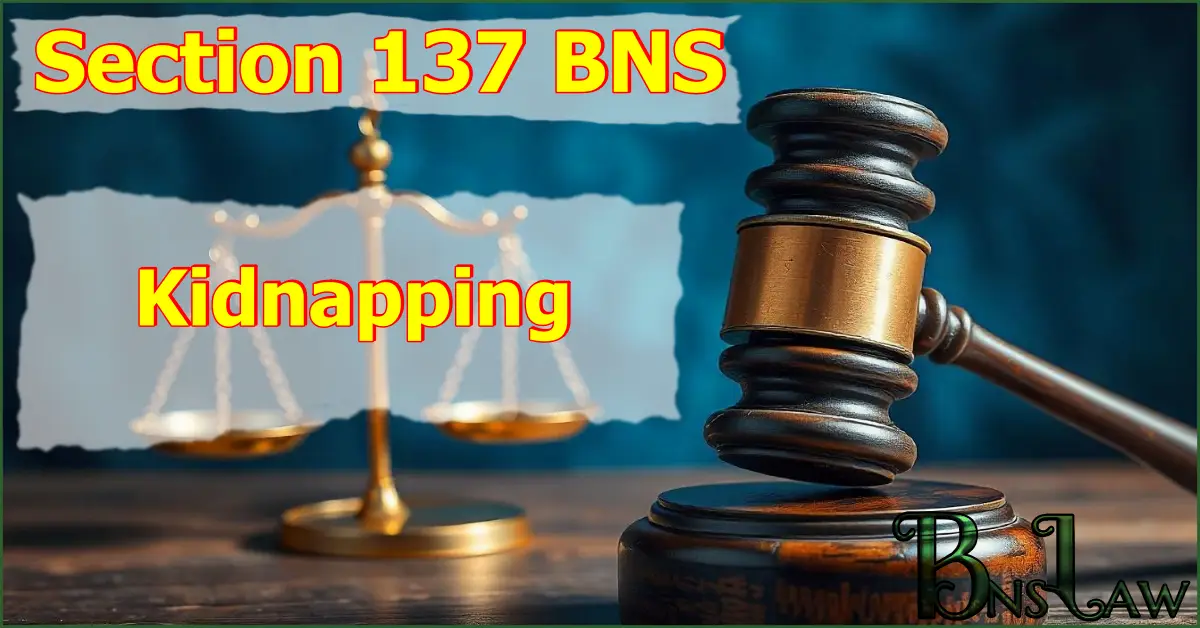Section 137 BNS | Kidnapping Section in BNS
137(1) BNS
Kidnapping is of two kinds: kidnapping from India, and kidnapping from lawful guardianship—
(a) whoever conveys any person beyond the limits of India without the consent of that person, or of some person legally authorised to consent on behalf of that person, is said to kidnap that person from India;
(b) whoever takes or entices any child or any person of unsound mind, out of the keeping of the lawful guardian of such child or person of unsound mind, without the consent of such guardian, is said to kidnap such child or person from lawful guardianship.
Explanation— The words “lawful guardian” in this clause include any person lawfully entrusted with the care or custody of such child or other person.
Exception— This clause does not extend to the act of any person who in good faith believes himself to be the father of an illegitimate child, or who in good faith believes himself to be entitled to the lawful custody of such child, unless such act is committed for an immoral or unlawful purpose.
137(2) BNS
Whoever kidnaps any person from India or from lawful guardianship shall be punished with imprisonment of either description for a term which may extend to seven years, and shall also be liable to fine.
READ OTHER SECTIONS OF CHAPTER VI — OF OFFENCES AFFECTING THE HUMAN BODY
FAQs of BNS Section 137
-
137 BNS punishment and fine
Punishment and fine under Section 137(2) of the BNS: Imprisonment for 7 years and fine.
-
137 BNS cognizable or not
The offence under Section 137(2) of the BNS is cognizable.
-
137 BNS bailable or not
The offence under Section 137(2) of the BNS is bailable.
-
137 BNS trial court
Offence specified in Section 137(2) of the BNS is triable by the Magistrate of the first class.
Important Points
- Cognizable Offences: These are offences where a police officer can arrest a person without a warrant.
- Non-Cognizable Offences: These are offences where a police officer cannot arrest a person without a warrant.
- Bailable Offences: These are offences where the accused can get bail from the police station itself. All bailable offences are listed in the First Schedule of the Bharatiya Nagarik Suraksha Sanhita (BNSS).
- Non-Bailable Offences: Offences in which bail is not granted directly from the police station but after hearing the case in the court, the judge decides when bail will be granted. All non-bailable offences are listed in the first schedule of the Bharatiya Nagarik Suraksha Sanhita (BNSS).
- In the above FAQ, “trial court” means the court that has jurisdiction to try the offence.
- In the above FAQ, the expression “Magistrate of the first class” and “Any Magistrate” does not include Executive Magistrates.
Read other Sections of the BNS
Reference Link: New Criminal Laws (BNS), Ministry of Home Affairs







